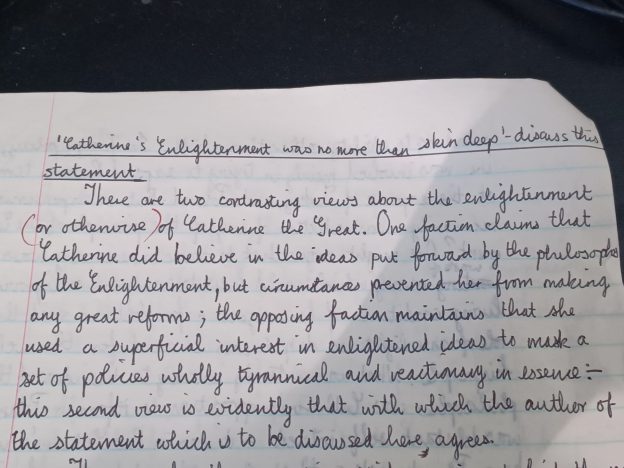Quamdiu Se Bene Gesserit, or, a legal historian’s view of Dune
There is a new film based on Frank Herbert’s Dune in cinemas at the moment. I am still not entirely happy with the idea of ‘sharing moisture’ with a room full of strangers, given the continued pandemic, but I dare say I will see it one day on DVD or streamed. In the meantime I thought I would re-read the books (well, re-read the first one, read the rest – I don’t think I got beyond vol. 1 as a teenager) and see what they say (explicitly and implicitly) about the legal system(s) in the Duniverse. When constructing a whole world, or set of worlds, like this, an author inevitably draws on contemporary ideas about law. They almost always also bring in (contemporary ideas about) legal history, when setting up certain sorts of ‘alien’ civilisation. I am sure there is a way I could use all of this in LH teaching, but, for now, let’s just get down a few thoughts….
[And note – book I has a glossary and Appendices – feels like home!]
Dune is set in a far-future in which there are multiple planets with human(oid) civilisation. After all sorts of war and chaos, things have come to an uneasy setllement. In the first book, this is more ‘uneasy’ than ‘settled’, but there is definitely an idea of what ought to be going on, and a lot of it is explained in terms which will not be familiar to lawyers and legal historians. The main systems of law/norms which we see are (i) what I would call the ‘general law’ – overarching rules applying to the Imperium and its constituent parts; and (ii) the specific laws/customs of the Fremen of Arrakis, a.k.a. Dune, a desert-living people, the conception of whom owes much to a 1960s US conception of Arab peoples, viewed through the lens of the film Lawrence of Arabia (1962).
The basic constitutional set-up is that there is an emperor, and a set of hereditary rulers of planets, or planetary systems, owing allegiance to the emperor (leaders of the Great Houses and the Minor Houses). We don’t hear much about the lower orders – though there are definitely slaves.[i]
An aspect of the system-building in Dune that I like is the mixing of ideas of hereditary rule with those of corporate law and structure. The relationship between the emperor and the Great Houses is complicated by the presence of a corporate vehicle, CHOAM. Shares, and corporate roles, in this huge development company go along with position in the hereditary structure. I suppose what appeals to me about this is the idea that the crown and hereditary power organisational model is not some sort of high-minded ‘noble’ thing, above the fray capitalist structures: it is all about the money, and employs whatever legal vehicles maximise profits for a limited group of people.
‘Law is the ultimate science’[ii]
The ‘basic law’ governing relationships here is the Great Convention (GC). 596 – GC univesal truce enforced under power balance maintained by Guild, Gt Houses and Imperium. It is not quite clear how detailed this is: is this a ‘codified’ legal world’ – should I be thinking of somethng the length of Magna Carta or something more like the Code Napoléon?
In terms of content, the GC includes rules, each beginning ‘‘the forms must be obeyed’.[iii]
- Chief rule – no atomic weapons to be used against a human target. The penalty is planetary obliteration.[iv] Some weapons appear to be on the edge of legality under this rule, particularly the ‘stone-burner’ (radioactive, deadly, blinding …).[v]
- Dictum familia – setting up the rules on non-prohibited assassination. Because informal treachery would be bad …
- rules about kanly (feud or vendetta). There are strict rules. The process involves swearing kanly, and then being entitled to kill all agents of the House against which it has been sworn.[vi]
The general thrust, then, seems to be an agreement which does not aspire to genuine peace, but tries to keep a lid on excessive disorder by setting a few rules. The kanly idea has certain resonances with ideas about the early medieval period, but with no real central effort to channel people’s grievances towards compensation rather than vengeance.
Another source of law is legislation by the Landsraad, which seems to be a sort of parliament.[vii] There are also imperial Orders in Council.[viii] And public law fans everywhere will be thrilled to learn that there is some rumbling about wanting a proper written constitution.[ix] Once he is emperor, Paul is not very keen on the idea of a constitution (which would of course, tie his hands somewhat).
‘Constitutions become the ultimate tyranny’[x]
Just begging for a ‘discuss’, isn’t it? Jessica and Alia agonise over the law/religion/government relationship.[xi] Paul, however, is not a great fan of the law – a bit of Marxism, or some such going on here?
‘What is law? Control? … Law – our highest ideal and our basest nature/ Don’t look too closely at the law. Do and you’ll find the rationalized interpretations, the legal casuistry, the precedents of convenience. You’ll find the serenity which is just another word for death’.[xii]
For the legal historians, we have the possibility of investigating the role of custom, in particular with regard to the Fremen, and pondering again the distinction between law and custom … There is even the odd bit of jurisprudence – an undead philosopher trashes natural law and has a go at classic seminar question ‘What is justice?’.[xiii]
Other aspects of organisation are not explicitly tied to the GC or particular legislation, but seem to have the status of law. Family law and succession are clearly important. There is an idea of monogamous marriage, but also other forms of relationship amongst the ruling classes. Baron Harkonnen seems to favour young male partners, and nobody seems to be bothered. Powerful men may have a concubine, and this is a relatively respectable position. Jessica is described as the concubine, or formal concubine, or bound concubine of Duke Leto (who is unmarried, for political reasons). As concubine, Jessica has a degree of power and respect, and her son, Paul, is regarded as legal heir to the Dukedom, and then rightful Duke, and Alia Leto’s legal daughter.[xiv] Still, it is a bit of an unsatisfactory position, even if Leto charmingly tells her that she is actually better off because he hasn’t married her (it seems to be his choice …) as that means she doesn’t have to eat formally with him every night.[xv] The pattern is repeated in the next generation: Paul is ‘with’ his Fremen woman, Chani, but is going to marry the Emperor’s heiress, Princess Irulan. It’s OK though, because ‘this is a political thing … [and] that princess shall have no more of me than my name.’ [no sex, no kids – and the name thing shows that gender trumps rank …][xvi]
One of the groups involved in power and overthrow of power is called the Bene Gesserit – thus my title. Not quite clear to me why that name would have been chosen – it alludes to good behaviour, and for legal historians has resonance with the commission to judges that they shall keep their role as long as they do not misbehave (as opposed to serving as long as the monarch pleases, the older, pre-17th C, rule which made it simpler to remove them). This has been taken to be important for judicial independence (though it can be exaggerated, because it does nothing to ensure that those who are appointed in the first place are independent types rather than subservient ones). I am not quite sure what that has to do with the Bene Gesserit in the Dune books, who are an order of women with highly trained physical and especially mental capacities. They are associated repeatedly with another rather 17th C-resonant thing, though: witchcraft. They are forever being called witches, and we even get a very witch-hunty ciration of ‘Thou shalt not suffer a witch to live’ at one point.[xvii]
We are invited – implicitly – to contrast the laws and treachery of the rest of the universe with the honour and law of the semi-nomadic Fremen. There is more than a touch of orientalism/romanticising the ‘primitive’ about this (and before we dismiss the latter as a term we would never use now, I did notice ‘ancient and primitive law’ as a heading within the classification system at a library last week). The laws and customs of the Fremen are strange to outsiders at first, but the suggestion is that they are logical responses to their unforgiving environment, with its extreme shortage of water. I don’t think we are supposed to see the Fremen as misogynist, but some of their rules definitely show the perspective of a man of the mid-20th C. No hint of Frewomen’s Liberation …
They may be Fre, but the Fremen are not individualistic. It is all about the group’s survival, and getting and retaining water. The overall rule is: ‘A man’s flesh is his own; the water belongs to the tribe’.[xviii] Leading on from this, those who are net takers of water without providing anything to the group may be sacrificed, and rendered down for their moisture,[xix] and the blind ought to be abandoned in the desert, presumably for similar reasons.[xx] Taking it a step further, in a sense, it was, at least at one time, the case that ‘someone caught outside the sietch without a stillsuit was automatically killed. To waste water was to endanger the tribe.’[xxi]
Despite the whole group thing, there is also some sort of individual property right in water. Paul is entitled to the water of a defeated adversary, and Jessica retains rights in the bottled water she brought with her. Giving some of it up to the others whilst in the desert will be compensated tenfold when they get to the Fremen settlement.[xxii] There are also tokens for water from the common stock, which are involved in courtship (I love you so much I am giving you the moisture captured from somebody’s squished flesh ..). There also seems to be a limited idea of property in chattels – so things belong to people, but are shared out by the leader when somebody dies.[xxiii]
Keeping one’s word is a big deal, and there is a consciousness of being especially honourable in this respect. Contracts are, of necessity, oral.[xxiv] [No specialty rule for the Fremen …]
The Fremen use trial by combat not (just?) for things we would think of as legal, but to determine truth, under the ‘amtal rule’.[xxv] Combat seems to be an all male affair,[xxvi] and is to the death. Intriguingly, there is an echo of medieval trial by combat procedure, in that it has to be ensured beforehand that Jessica, who has the special powers of a Bene Gesserit ‘witch’, will not put a spell on a combatant.[xxvii] There is also some form of ordeal – as when Jessica shows she is fit to be a Reverend Mother (this ordeal rather resembling the ordeal of the bitter waters, Numbers 5:11-31).[xxviii] Ordeals are not confined to the Fremen: Paul is also tested by a Bene Gesserit Reverend Mother, to check his humanity (didn’t quite get that …) in a fancy process involving a poison needle and a box of (artificial) pain (if you can have artificial pain ..). Bit of a step up from hot iron, ploughshares and holy morsels of medieval European ordeals. Interestingly this is not founded on an appeal to God, but on psychological understanding of what humans and animals would do differently.[xxix]
Anyway, back to the Fremen. Combat is also the way one leader takes over from the last. The Fremen do not have hereditary leadership, but rather the strongest person (well, man) leads: ‘the one who brings water and security’.[xxx] Paul manages to change the rule, so he doesn’t have to kill Stilgar to lead. Instead, he has Stilgar go through what looks like a homage ceremony, kneeling, handing over his knife, swearing fealty.[xxxi] Hmm – doesn’t sound that Fre to me …
Except there is relatively Fre love. For the men anyway. And assuming that they like women. At least there is a convention that women ‘are not taken against their will’.[xxxii] Nevertheless, there are certainly situations in which men get to do the choosing as to relationships – we see this after (15 year old) Paul beats Jamis in combat, and gets to decide whether to have his widow as his woman or his servant, or free her.[xxxiii] And families appear to decide who a Fremen woman will marry (relatively young).[xxxiv] So – not as fre-ly consensual as all that. Another aspect of Fremen Family Law which emerges is that there is a rule against incest: the death penalty (hanging on a tripod) applies to incest.[xxxv] Exactly what amounts to incest is unclear, beyond the example of brother and sister which is the matter in hand in the passage relating to this law. One would have thought that the structure of society would have meant quite a lot of in-marriage within tribes, so the rules would have to be restricted to a small number of banned relationships.
One practical issue which is not addressed is how exactly initmacy works – I don’t mean the complex business of getting into somebody’s stillsuit, but the water issue. They are all so cautious about losing moisture, but there is the issue of, well, fluids involved in ‘the huddlings of sex’,[xxxvi] isn’t there?
All of which has wandered off the point a bit – ah well, this is a work in progress, and I shall revise and resubmit after I have read some more.
[Miscellaneous points – couldn’t find an obvious place to put these, but they need to be in here somewhere …
- Everyone seems to be off their face on the addictive drug spice/melange all the time … Is that any way to run a universe?
- They have ruffs – ruffs![xxxvii] Sorry – they are never coming back, however far in the future. I make no secret of my extremist anti-ruff stance … Preposterous!]
GS
6/11/2021
Updated 19/11/2021, after reading Book III
[i] I: 39. And obviously he does say ‘slaves’ rather than ‘enslaved people’. 1960s.
[ii] I: 252 ‘Thus it reads above the Emperor’s door’.
[iii] I: 596.
[iv] I: 514.
[v] II, 55.
[vi] 100, 161, 517.
[vii] II: 75
[viii] II: 76.
[ix] II: 76.
[x] II, 76.
[xi] II: 252.
[xii] II: 249.
[xiii] II: 151 – Duncan Idaho, a fighter turned zombie type of thing (generally positive character) says of natural law that it is a ‘myth’ that ‘haunts human history’. II: 156 is his go at justice. Fair to say he has no problem with dictatorial power.
[xiv] I: 54, 57, 589.
[xv] I: 54.
[xvi] I: 561.
[xvii] III:58
[xviii] I: 241.
[xix] I: 238, 316-7.
[xx] II: 242. Cue a nice bit of legal tricksiness from Paul – he loses his eyes, but initially argues that because he can see with his mystical powers, he doesn’t have to be desert-ed. In the end though, he surrenders to the law, to become properly Fre (though also, to be fair, properly dead). The Fremen Law about sending the blind off into the desert is expressed as consigning them to Shai-Hulud (the great worm) in III:39.
[xxi] III: 286.
[xxii] I: 349, 351.
[xxiii] I: 354.
[xxiv] I: 320.
[xxv] I: 337.
[xxvi] Possibly a little inconsistent with the existence of Fremen amazons – II: 111?
[xxvii] I: 340.
[xxviii] I: 401.
[xxix] I: 6-9.
[xxx] I: 328.
[xxxi] I: 489.
[xxxii] I: 330.
[xxxiii] I: 389.
[xxxiv] III:290.
[xxxv] III:113.
[xxxvi] I: 332.
[xxxvii] II:250. It is a foppish traitor wearing one, mind.
Image: sand! (sadly no pictures of giant worms to be found …) Photo by Matteo Di Iorio on Unsplash







